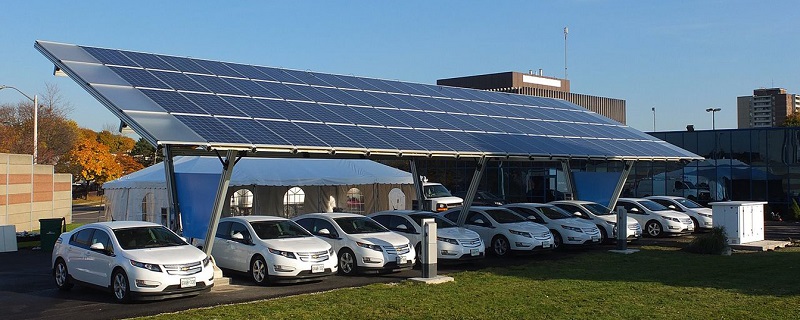EV charging stations
EV charging stations
EV charging stations and solar energy can be combined to create a more sustainable and eco-friendly charging infrastructure for electric vehicles.

Here’s how solar energy can be integrated into EV charging stations:
1. Solar-powered charging stations: EV charging stations can be equipped with solar panels to generate electricity from the sun. This solar energy can then be used to power the charging stations, reducing reliance on grid electricity and utilizing clean, renewable energy.
2. Off-grid charging: Solar-powered EV charging stations can operate independently of the grid, making them suitable for remote locations or areas with limited access to electricity. The solar panels generate electricity during the day, which is stored in batteries for use during the night or when there is low sunlight.
3. Net metering: In locations where net metering is available, excess solar energy generated by the charging station can be fed back into the grid. This allows EV charging stations to not only power electric vehicles but also contribute to the overall energy supply.
4. Solar carports: Solar panels can be installed on carport structures to provide shade for parked vehicles while simultaneously generating electricity. These solar carports can be integrated with EV charging stations, allowing electric vehicles to be charged directly from the solar energy generated on-site.
5. Energy management and optimization: Advanced energy management systems can be implemented to optimize the use of solar energy in EV charging stations. These systems can prioritize charging when solar energy production is at its peak, ensuring maximum utilization of clean energy.
By combining EV charging stations with solar energy, we can reduce greenhouse gas emissions associated with electric vehicle charging and promote the use of renewable energy sources. This integration supports the transition towards a more sustainable and low-carbon transportation system.